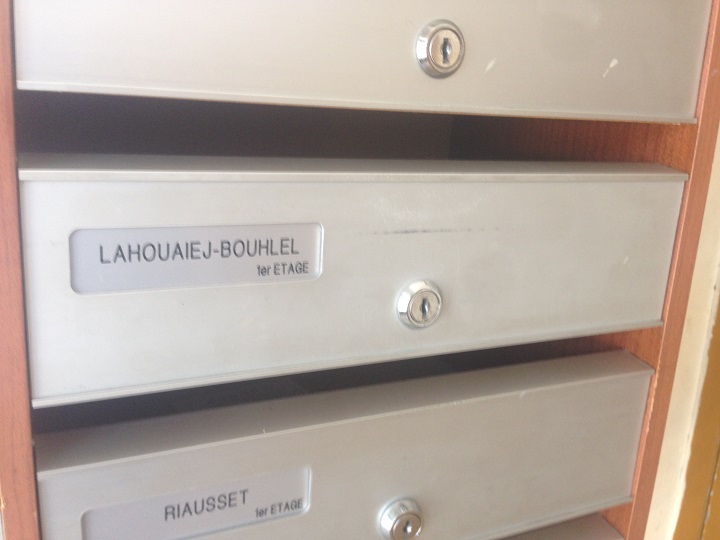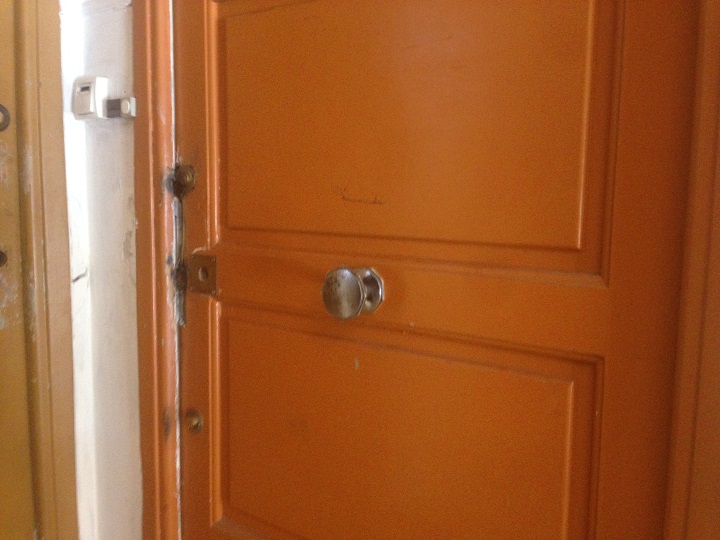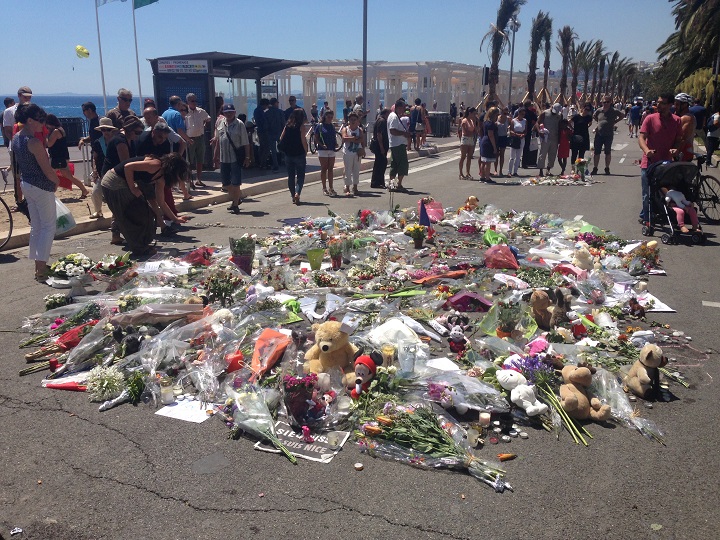NICE, France — French authorities detained two more people Sunday in the investigation into the Bastille Day truck attack on the Mediterranean city of Nice that killed at least 84 people, as authorities try to determine whether the slain attacker was a religious extremist or just a very angry man.

Hundreds were injured in the Thursday night attack, and about 85 people remained hospitalized Sunday, Health Minister Marisol Touraine said on a visit to the southern French city. Of those, 18 are in life-threatening condition – including one child, she said.
READ MORE: Canadian student from MacEwan University reported missing after Nice attack
A man and a woman were detained Sunday morning in Nice, according to an official with the Paris prosecutor’s office, which oversees national terrorism investigations. The official provided no details on their identities, and said five people detained previously remain in custody. Neighbors told The Associated Press the attacker’s estranged wife was among them.
Investigators are hunting for possible accomplices to truck driver Mohamed Lahouaiej Bouhlel, a 31-year-old Tunisian who had lived in Nice for years. He was killed by police after ramming his truck through crowds on Nice’s famed seafront after a holiday fireworks display Thursday night.
The Islamic State group has claimed responsibility for the attack, but it’s unclear whether Bouhlel had concrete links to the group. The IS said he was following their calls to target citizens of countries fighting the extremists.

Neighbors described the attacker as volatile, prone to drinking and womanizing and in the process of getting a divorce. His father, in Tunisia, said his son did not pray or fast for Ramadan, the Muslim holy month.

Get breaking National news
PHOTO GALLERY: Truck driver Mohamed Lahouaiej Bouhlel’s apartment
But French authorities believe that may have changed. Prime Minister Manuel Valls told the Journal du dimanche newspaper that authorities “now know that the killer radicalized very quickly.”
“(IS) is encouraging individuals unknown to our services to stage attacks … that is without a doubt the case in the Nice attack,” he said Sunday.
A special church service was being held at a Nice cathedral Sunday in honor of the victims. Touraine, the health minister, urged any survivors to seek counselling offered by the government.
READ MORE: ‘We were just there’: Edmonton women in Nice, France hours before truck attack
Nice’s famous Promenade des Anglais, the site of the slaughter, is gradually reopening and becoming a shrine to the dead. Memorials have been set up on the westbound lane of the road where victims were struck, some still identifiable by bloodstains.
Joggers, bikers and sunbathers on Sunday cruised down the pedestrian walkway along the glistening Mediterranean Sea, where well-wishers placed flowers, French flags, stuffed animals and candles.
The site is also becoming a platform for anger at the attacker. Pained and outraged epitaphs have been written in blue marker on stones placed where police shot him dead.
A woman asked if she could put a yellow potted plant there, unaware of the significance of the spot. A man standing nearby said “Never here.” An argument ensued, with other passers-by saying that his family deserved respect.
“Are you defending him?” the man said, incredulously.
Many families are angry that they couldn’t find information about missing loved ones. Many are also angry at French police and authorities for not preventing the deadly attack, even though France was under a state of emergency imposed after Islamic State attacks last year in Paris.
Valls, in the newspaper interview, defended the government’s actions but warned that more lives will be lost to this kind of violence.
“Terrorism will be part of our daily lives for a long time,” he said.
—
Charlton reported from Paris
























Comments